If you’ve ever strolled past a flock of chickens frolicking in the yard, you might have noticed them happily pecking at the ground. They do that a lot, don’t they? It turns out chickens are quite fond of grass, and that’s what we’ll be exploring today: do chickens eat grass?
The quick and simple answer is yes, chickens do eat grass, and they love it. But just as we can’t survive solely on salads, chickens can’t live on grass alone. This feathery crew is naturally omnivorous, and they crave a balanced diet just as much as we do. Grass, in their diet, plays a crucial supplementary role.
In the following sections, we’ll dive deeper into a chicken’s dietary needs, the role of grass, and how you can effectively manage and enhance your chickens’ diet with grass. We’ll also address any concerns with grass consumption and discuss alternative supplements for a healthy, happy flock. Whether you’re an experienced chicken keeper or just starting, this article promises to equip you with valuable insights.
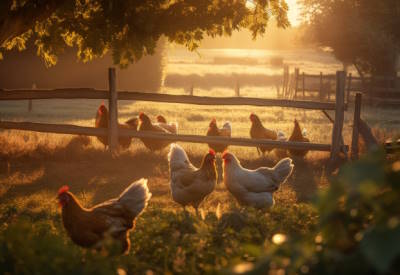
The Diet of a Chicken: A General Overview
When we talk about the health and productivity of chickens, the diet plays an indispensable role. Understanding what chickens eat can give us insights into their well-being and egg-laying capacity.
Understanding a Chicken’s Digestive System
Chickens have a unique digestive system compared to other farm animals. They are equipped with a gizzard, a small part of their stomach that uses grit (small stones or coarse sand) to grind food into smaller, digestible pieces. This allows them to process a wide variety of foods that many other animals can’t.
The Omnivorous Nature of Chickens
Chickens are omnivores by nature. That means they can eat a mix of both plant and animal-based foods. They will happily feast on grains, seeds, fruits, vegetables, and even insects or small rodents if they can. A varied diet helps to ensure that chickens receive a balanced mix of necessary nutrients.
The Impact of Diet on Chicken Health and Productivity
The diet of a chicken directly influences its health and productivity. A nutritionally balanced diet will result in healthier chickens that lay better-quality eggs and are more disease-resistant. On the other hand, a poor diet can lead to weak, unproductive chickens that are more susceptible to illnesses.
[ChickenAffiliate]
Grass in a Chicken’s Diet
If you’ve ever kept chickens, you’ll know that they love to peck at anything and everything, grass included. But what role does grass play in a chicken’s diet?
Nutritional Benefits of Grass for Chickens
Grass is packed with vital nutrients like vitamins, minerals, and fiber that can significantly benefit chickens. The chlorophyll in grass provides vitamin A, which is crucial for chickens’ immune systems and overall health. Also, foraging in the grass can help stimulate natural chicken behaviors, keeping them happier and healthier.
The Role of Grass in Supplementing Chicken’s Diet
While chickens cannot live on grass alone, it is an excellent supplement to their primary diet. The carbohydrates in grass provide energy, while the fiber aids digestion. Even the grit chickens ingest while pecking at the ground can assist with their digestion process.
How Chickens Eat Grass: The Process
Chickens don’t eat grass like ruminant animals, such as cows and sheep. Instead of grazing, they peck at the tips of the grass and swallow it whole, where it is ground up in their gizzard for digestion.
Incorporating Grass into Your Chickens’ Diet
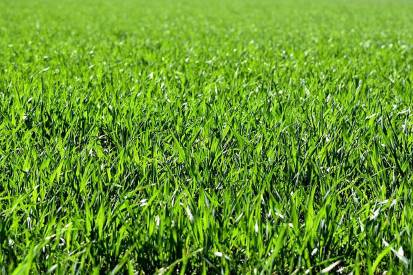
Knowing the benefits of grass, you might be wondering how to incorporate it into your chickens’ diet. Here are some tips:
Choosing the Right Type of Grass
Not all grass is created equal. Some types of grass are more palatable and nutritious for chickens than others. Common choices include ryegrass, fescue, and clover.
How to Introduce Grass to Chickens
Introducing grass to chickens is usually a straightforward process. If your chickens are free-range, they’ll likely find the grass on their own. For cooped chickens, fresh grass clippings can be mixed into their feed.
Managing Chickens’ Grass Consumption
While grass is beneficial, it should not constitute the majority of your chickens’ diet. Ensure they can access their primary feed and monitor their grass consumption to maintain a balanced diet.
Potential Risks and Concerns with Chickens Eating Grass
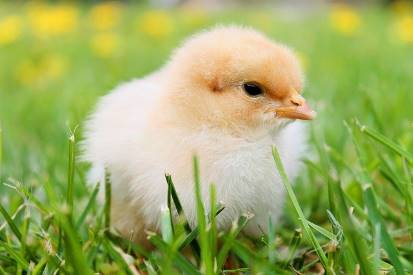
While grass is generally good for chickens, there are potential risks and concerns that you should be aware of.
Possible Health Risks and How to Mitigate Them
Too much grass can cause a blockage in a chicken’s digestive system, so it’s essential to keep an eye on their consumption. If a chicken is eating grass excessively, it might indicate that its primary diet lacks certain nutrients.
Pesticides and Other Environmental Concerns
Keep your chickens away if you’re using pesticides or other chemicals on your lawn. These chemicals can be harmful or even lethal to chickens if ingested.
Dealing with Overgrazing Issues
Chickens can quickly devastate a patch of grass if confined to a small area. Consider implementing a rotational grazing system to avoid overgrazing.
Enhancing Your Chickens’ Grass Diet: A Guide to Pasture Management
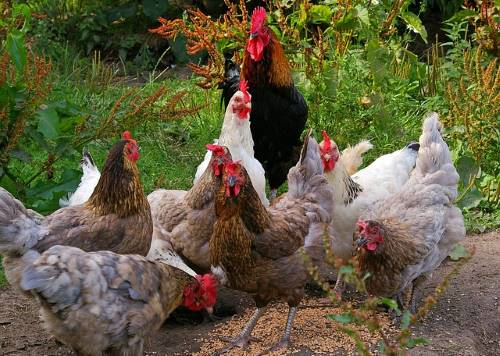
Effective pasture management is essential to maintain a healthy, sustainable source of grass for your chickens.
Establishing a Healthy Chicken Pasture
Start by selecting grass varieties well-suited to your local climate and soil type. Seed your pasture, and water it regularly until the grass is well-established.
Ensuring Grass Variety and Nutrition
Growing a variety of grass species will ensure that your chickens have access to a broad range of nutrients. You can also consider interplanting with legumes like clover to boost the nutritional value of your pasture.
Pasture Rotation Systems for Chickens
Rotating your chickens between different pasture areas will prevent overgrazing and allow the grass to recover. In the long run, this can lead to a more sustainable and nutritious food source for your chickens.
Alternatives and Supplements to Grass in a Chicken’s Diet
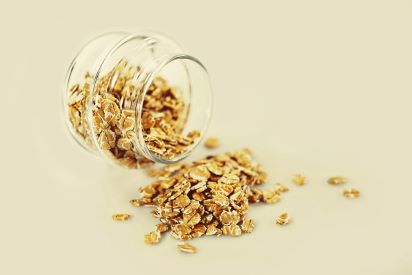
Although grass is a great supplement, chickens benefit from other plant-based foods.
Common Fodder Crops for Chickens
Fodder crops such as alfalfa, oats, and wheat can also be great additions to a chicken’s diet. They provide similar benefits to grass but with different nutrient profiles.
Kitchen Scraps and Other Complementary Foods
Many kitchen scraps like fruit and vegetable peels, stale bread, and cooked rice can be safely fed to chickens. These can add diversity to their diet and reduce waste.
Using Commercial Feeds to Supplement Grass Diet
Commercial chicken feeds are designed to provide a balanced diet for chickens. These can be used as the primary feed, with grass and other foods acting as supplements to add variety and extra nutrition.
The Impact of Seasonality on Grass Availability and Nutrition
When thinking about feeding grass to chickens, it’s essential to consider the season. Different grasses thrive at different times of the year, which can impact both their availability and nutritional content.
Ensuring a Consistent Grass Supply
To ensure your chickens have a consistent supply of grass throughout the year, you can plant a mixture of cool-season and warm-season grasses. Cool-season grasses like ryegrass and fescue thrive in spring and fall, while warm-season grasses like Bermuda grass do well in the summer.
By having a mix, you can ensure your chickens have access to fresh, live grass for a larger part of the year.
Seasonal Fluctuations in Nutritional Content
Keep in mind that the nutritional content of grass can also fluctuate with the seasons. Generally, grass is most nutritious during its rapid growth phase in the spring and early summer. As the summer progresses, the nutritional value can decline. Therefore, it might be necessary to supplement your chickens’ diet with additional feed during this period.
The Influence of Grass on Egg Quality
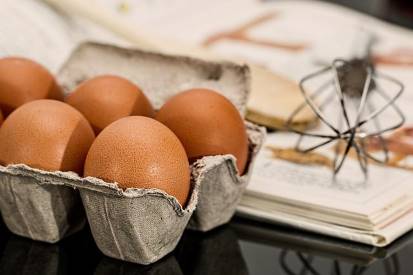
If you’re raising chickens for their eggs, you might be interested to know that grass can improve egg quality.
Improved Nutritional Profile
Studies have found that chickens with access to pasture – and therefore a good amount of grass in their diet – can produce eggs with higher omega-3 fatty acids and vitamins. This makes the eggs more nutritious and enhances their flavor, making them a favorite among consumers.
Enhancing Egg Quality with Grass
In addition to providing your chickens with access to grass, ensure they have a balanced diet overall. This includes sufficient protein and other essential nutrients in commercial feeds, grains, and kitchen scraps. With the proper diet, your chickens will be healthier and happier and reward you with high-quality eggs.
What Other Plants Can Chickens Eat Apart from Grass?
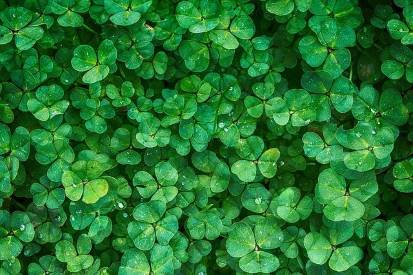
In addition to grass, chickens love to sample a variety of plants. These can provide various nutrients that can supplement a balanced chicken diet. Here, we will delve into some other plants your chickens can safely consume.
Clover
Clover is an excellent choice for chicken pasture. It’s highly nutritious, with a good amount of protein, vitamins, and minerals. Chickens love clover, and it can be a particularly good choice during the warmer months when it grows abundantly.
Read More: Can Chickens Eat Clover? 6 Fantastic Benefits
Alfalfa
Alfalfa is another top-notch plant for chickens. It’s high in protein, vitamins, and minerals, which makes it a fantastic supplement to their diet. Alfalfa can be given to chickens as fresh sprouts, hay, or pellet form. It’s especially beneficial for laying hens as it can help improve egg production.
Read More: Can Chickens Eat Alfalfa? 6 Important Benefits
Hay
Hay, especially when it’s a mix of different grasses, can provide a good source of roughage for chickens. It can also provide entertainment as chickens enjoy scratching and pecking through the hay, looking for seeds and insects.
Read More: Can Chickens Eat Hay? The Surprising Truth Revealed
Timothy Hay
Timothy hay is a specific type of hay that chickens enjoy. It’s packed with fiber and can help to maintain a healthy digestive system. It also provides an excellent bedding material for chickens to nest in, offering comfort and a nutritious snack at the same time.
Read More: Can Chickens Eat Timothy Hay? Your Complete Feeding Guide
Wheat
Wheat is a common component of chicken feed, but chickens can also enjoy fresh wheat plants. The grain provides valuable energy, and the straw can be used for bedding. Chickens also love to peck at whole wheat grains as a treat. Just be sure to limit the grains as they are high in carbohydrates.
Read More: Can Chickens Eat Wheat? Expert Guide To Feeding Your Flock
Do chickens eat grass – final thoughts
So, let’s feather up the key takeaways from our cluck-filled exploration: chickens eat grass and truly enjoy it. However, like a pinch of seasoning to a well-cooked meal, grass is more of a nutritional supplement than the main course. Ensuring your chickens have a balanced diet, including other feeds, kitchen scraps, and possibly commercial feeds, alongside grass is vital for their health and egg-laying efficiency.
From understanding the workings of a chicken’s unique digestive system and the impact of diet on its health to the intricacies of pasture management, we’ve pecked our way through it all. Now, you’re ready to have a well-informed conversation about a chicken’s diet or maybe even start your own poultry party.
Related Articles:
